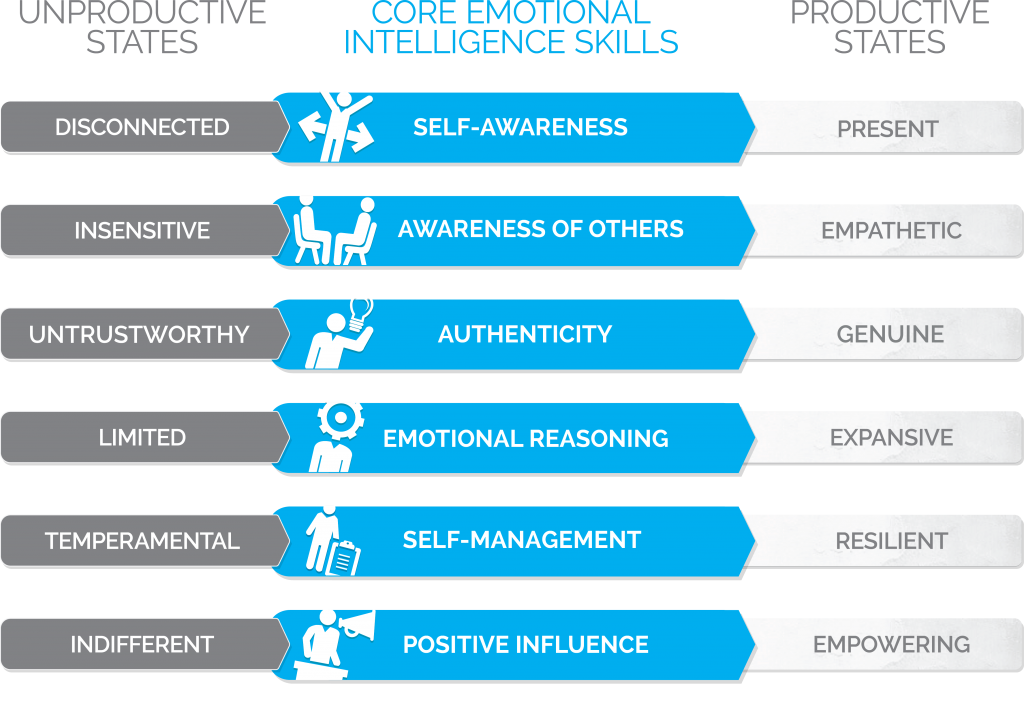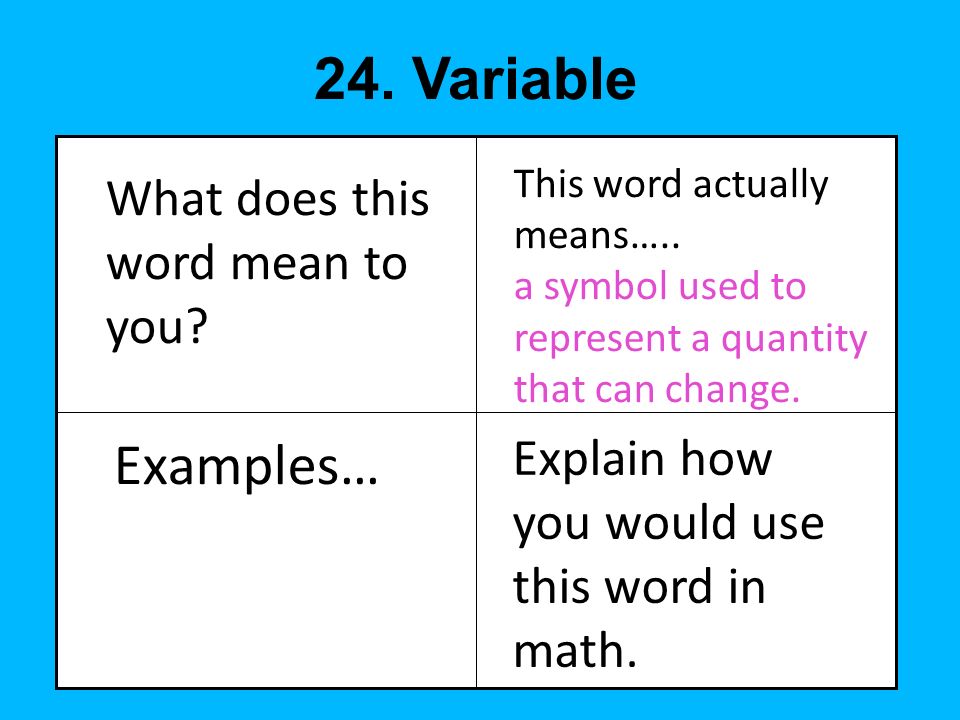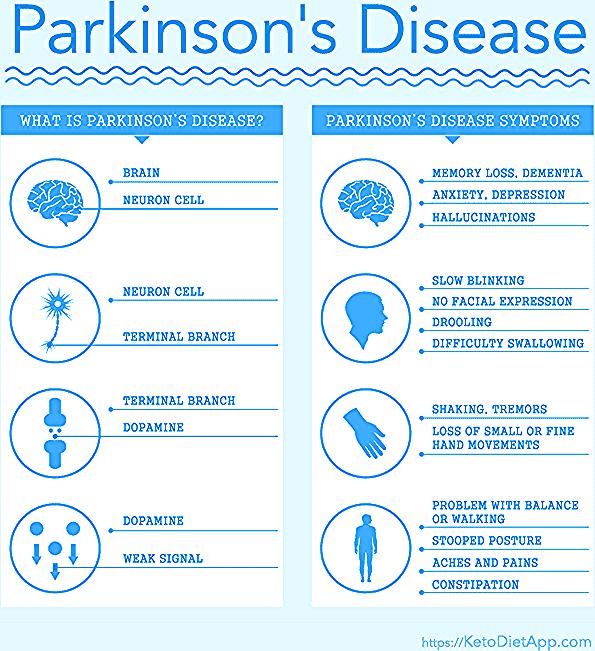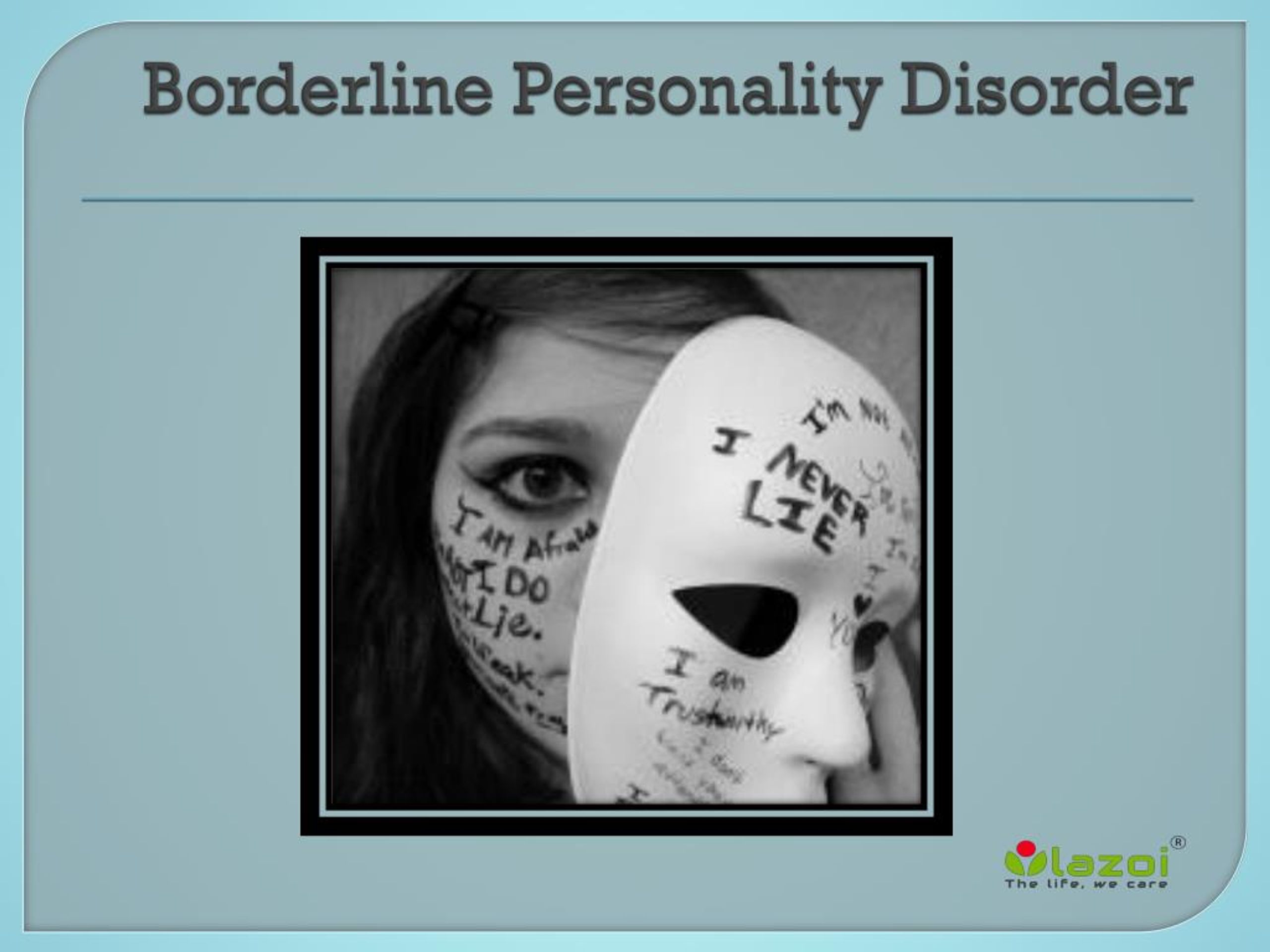Chronic negative thinking
What is Negative Thinking? How It Destroys Your Mental Health
Emma-Marie Smith
Negative thinking is something we all engage in from time to time, but constant negativity can destroy your mental health, leaving you depressed and anxious.
Science shows that positive thinking can improve mental wellbeing, minimize stress and even lead to better cardiovascular health, yet many of us are stuck following patterns of negative thinking. Let’s explore the effects of negativity on mental health while looking at ways to end the cycle.
What Counts as Negative Thinking?
If you're someone who analyzes your thoughts, it can be challenging to differentiate negative thinking from the regular worries that everyone has. Feeling sad about an upsetting event is normal, just as worrying about financial burdens or relationship troubles is something we all do from time to time. It’s when those feelings are repetitive and pervasive, however, that problems arise ("Why Am I So Negative and Angry and Depressed?").
The negative thinking definition from Rethink Mental Illness stipulates that:
"Negative thinking refers to a pattern of thinking negatively about yourself and your surroundings. While everyone experiences negative thoughts now and again, negative thinking that seriously affects the way you think about yourself and the world and even interferes with work/study and everyday functioning could be a symptom of a mental illness, including depression, anxiety disorders, personality disorders and schizophrenia."
Not everyone who engages in negative thinking has a mental illness, just like not everyone with a mental illness has constant negative thoughts. However, negative thinking can be detrimental to your mental health and quality of life, particularly when you can’t stop. Luckily, there are ways to end negative thoughts, but you must first look at what causes them.
What Are the Causes of Negative Thinking?
Negative thinking has many different causes.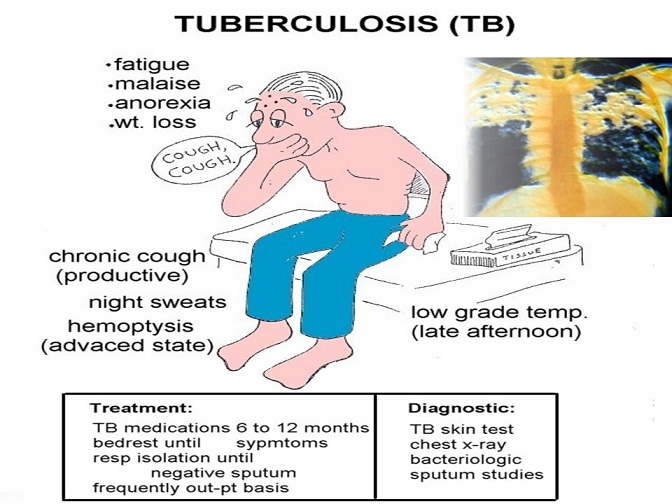 Intrusive negative thoughts can be a symptom of obsessive-compulsive disorder (OCD), generalized anxiety disorder (GAD) or another mental health condition. Negative thinking is also symptomatic of depression ("Negative Thinking and Depression: How One Fuels the Other"). While negative thinking can be a sign of mental ill health, it can also be a regular part of life. Negative thoughts can impact your life severely, however, so it’s best to get to the bottom of them, whatever the cause.
Intrusive negative thoughts can be a symptom of obsessive-compulsive disorder (OCD), generalized anxiety disorder (GAD) or another mental health condition. Negative thinking is also symptomatic of depression ("Negative Thinking and Depression: How One Fuels the Other"). While negative thinking can be a sign of mental ill health, it can also be a regular part of life. Negative thoughts can impact your life severely, however, so it’s best to get to the bottom of them, whatever the cause.
According to the Power of Positivity, there are three leading causes of negative thoughts.
- Fear of the future: People often fear the unknown and are unsure what the future might bring. This often leads to "catastrophizing," which means always predicting failure and disaster. Whichever way you look at it, worrying about the future is a waste of time and energy. The key to letting go of these negative thoughts is to accept there is a limit to what you can change in the future and strive to focus on the present instead.

- Anxiety about the present: Anxiety about the present is understandable. Many of us worry about what people think of us, whether we’re doing a good job at work and what the traffic will be like on the way home. Negative thinkers often come up with the worst-case scenario: that no one in the office likes us, our boss is about to tell us we’ve done terrible work, and the traffic will make us late to pick up the kids. Again, this derives from fear of losing control. Organization and routine can help with banishing negative thoughts, but you may also need to try practical therapy techniques.
- Shame about the past: Have you ever lain awake worrying about something you did last week, or even last year? Everyone does and says things they feel embarrassed about, but negative thinkers tend to dwell on past mistakes and failures more than others. Of course, a more constructive way to approach mistakes is to accept that the event happened and consider how you could prevent it from happening again in the future.
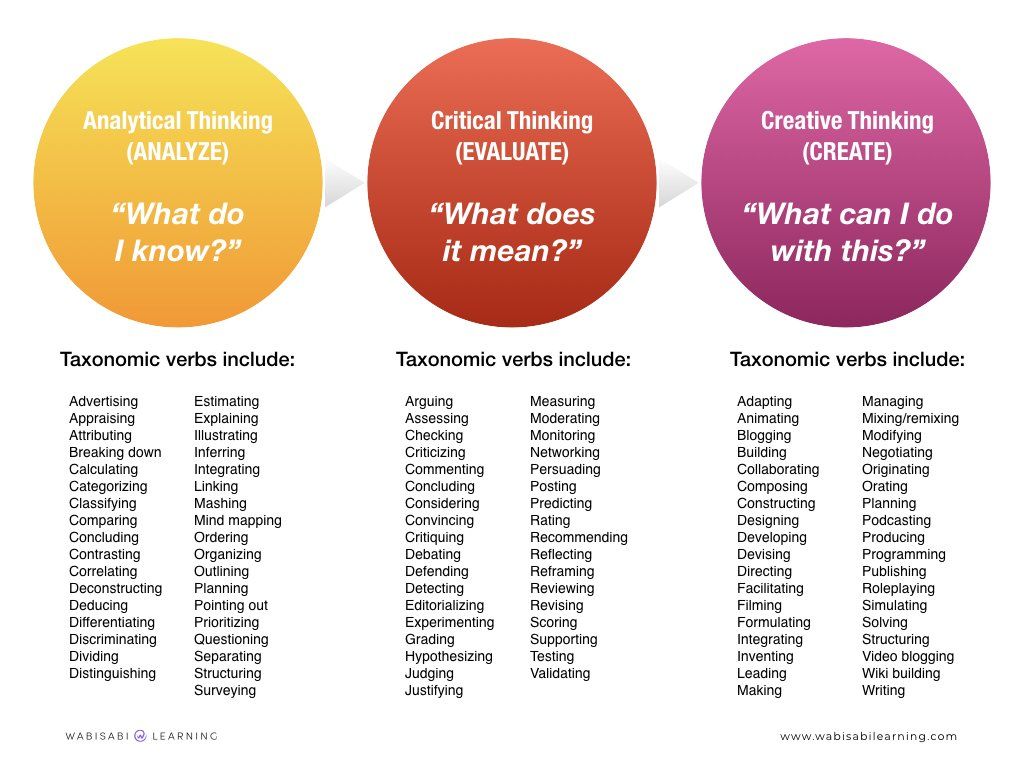
How to Stop Negative Thinking Once and For All
You don’t have to succumb to a life of negative thinking. With some basic countering techniques, you can learn to get rid of negative thoughts by intercepting them before they become all-consuming. The key is to practice countering exercises every time you have a negative thought, and not to give up if you have a blip.
With this in mind, here are five questions to ask yourself next time negative thoughts arise. You can do this exercise in your head or by writing down your answers in a journal.
- Is the thought true? Is there a basis for this negative belief?
- Is the thought giving you power, or is it taking your power away?
- Can you put a positive spin on this thought or learn from it?
- What would your life look like if you didn’t have these negative beliefs?
- Is the thought glossing over an issue that needs addressing?
Remember that countering negative thoughts takes time and commitment.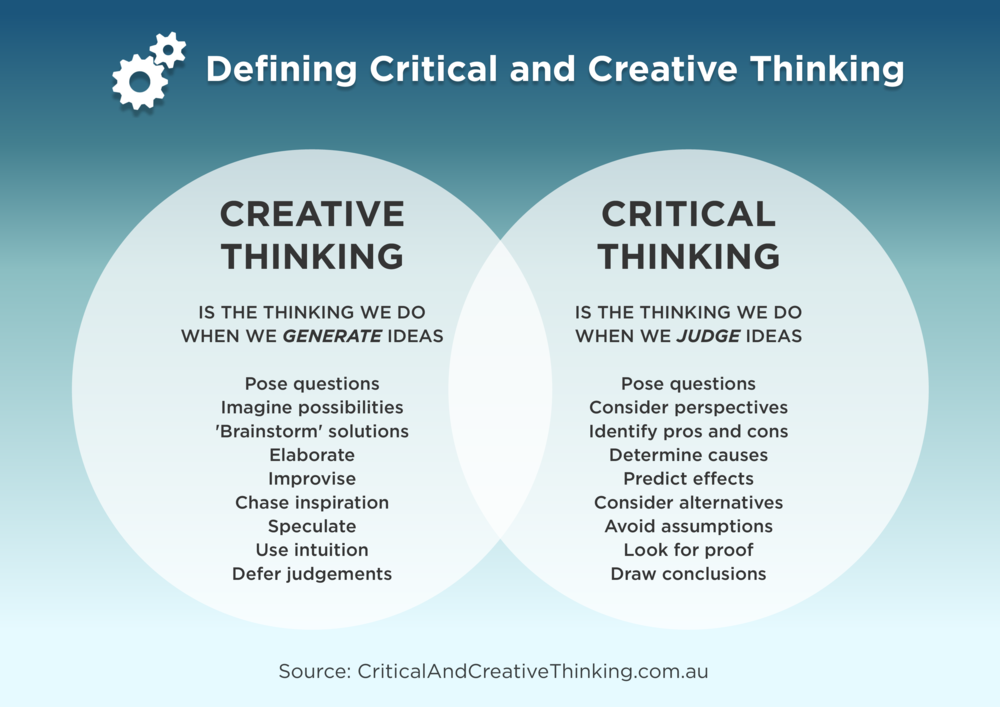 Often, people require ongoing help from a mental health professional to change their negative thinking patterns for good ("How to Create Positivity in Life When You Have a Mental Illness").
Often, people require ongoing help from a mental health professional to change their negative thinking patterns for good ("How to Create Positivity in Life When You Have a Mental Illness").
article references
APA Reference
Smith, E. (2021, December 31). What is Negative Thinking? How It Destroys Your Mental Health, HealthyPlace. Retrieved on 2023, April 17 from https://www.healthyplace.com/self-help/positivity/what-is-negative-thinking-how-it-destroys-your-mental-health
Last Updated: March 25, 2022
Medically reviewed by Harry Croft, MD
More Info
How to Improve Your Self-Esteem
The Conflict of Honesty
How to Get Out of Depression
Right Makes Might
Relationships
About the Author of Self-Help Stuff That Works
Forging Mettle
4 Ways to Stop Negative Thinking
“Humans, and our brains, have evolved such that we are capable of language, something no other mammals have,” explains McLean’s Lisa W.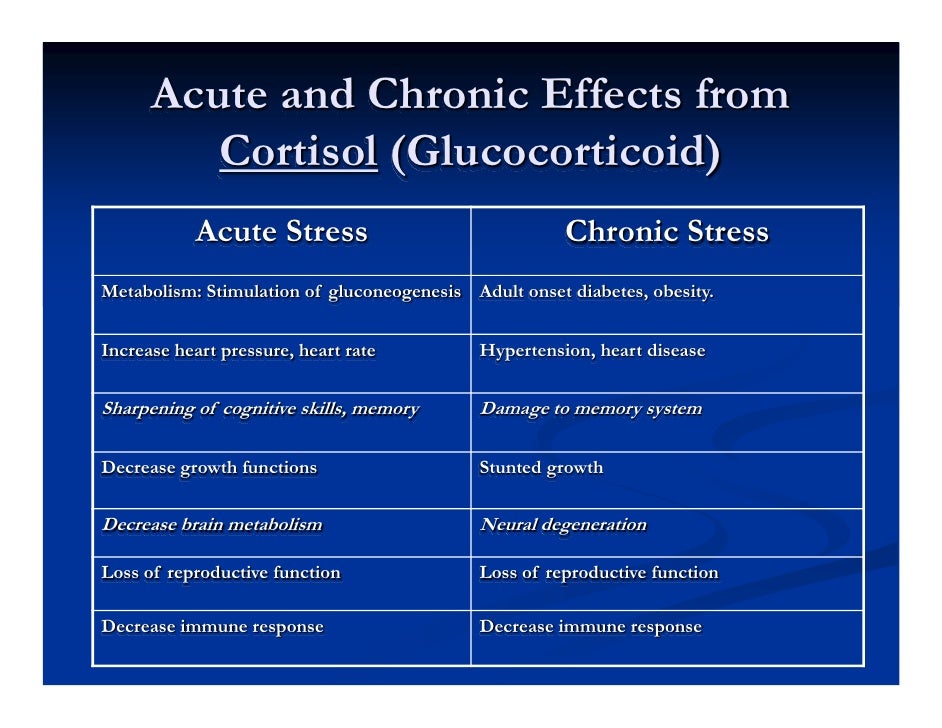 Coyne, PhD.
Coyne, PhD.
“Our ability to speak, think abstractly, and reason gives us the ability to plan, problem solve, collaborate in groups, and learn indirectly, in the absence of our direct experience. For example, you might have learned not to touch a hot stove because your parents told you ‘Don’t touch, it’s hot!’”
Moreover, Coyne states, “Everyone has a mind that ‘talks’ to them. We think of this as our verbal mind or our ‘advisor.’ It’s the part of you that is linked to your languaging brain, whose function is to serve as your threat detector.”
Having a threat detector or “critical voice” is a good thing. It points out things that could be dangerous to us, including things that might happen in the future and missteps from the past.
The function of the critical voice is to help us to avoid making the same mistakes so that we are physically and existentially safe.
Keep Reading To Learn
- The benefits and harms of listening to our critical voice
- Treatments and strategies for managing negative thoughts
How We Experience Our Critical Voice
People “do not hear voices, per se,” Coyne explains. “But we do notice critical thoughts popping up as we go through our days.”
“But we do notice critical thoughts popping up as we go through our days.”
She shares that “we have evolved to experience our thoughts as literal truths. It’s what allows us to learn indirectly by listening to what other people say, rather than only directly through our own experience.”
Our inner voice, Coyne states, “is always on, and it’s overinclusive in its estimation of what is threatening.” These are “features, not bugs” of our critical voice, she says.
“It wouldn’t be a great threat detector if you could turn it off at will, and it wouldn’t be a great threat detector if it somehow underestimated threats, right?”
Mental Health Screening
Online screening is one of the quickest and easiest ways to determine your psychological well-being.
Take the Test
Getting Stuck
Our nonstop, always cautious critical voice, Coyne says, is “an incredible ability, a boon to our survival, but also comes with a dark side.”
“People run into trouble when they get stuck listening to their mind solely, rather than being out in the world and noticing that sometimes the mind isn’t correct about what it thinks,” Coyne states.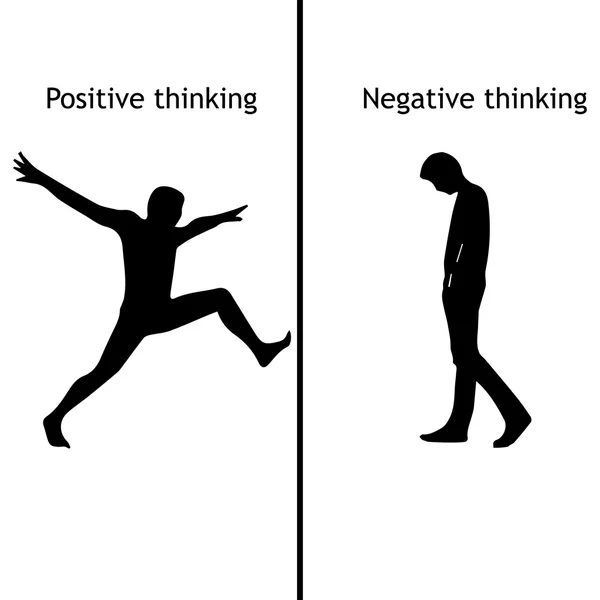
The critical voice can cause people to focus solely on avoiding unwanted thoughts and to avoid situations that trigger those thoughts. This is defined as “experiential avoidance.”
However, if this is our default for managing unwanted thoughts, it can trap us such that we lose our focus on other, more important things in our lives.
This focus on getting thoughts out of our heads not only captures our attention, but it also often backfires—sometimes the more you try not to think about something, the more it sticks around.
Coyne offers a real-world example of how this works: “My mind may say something like ‘Better not speak up in that meeting, people will think you are stupid, and that would be embarrassing.’ I might experience a physical reaction (my heart rate might increase). Or an emotional reaction (I’ll feel nervous),” she shares.
“And, of course, I’d have a cognitive reaction (should I not speak up? What’s the right thing to say so I don’t look stupid?).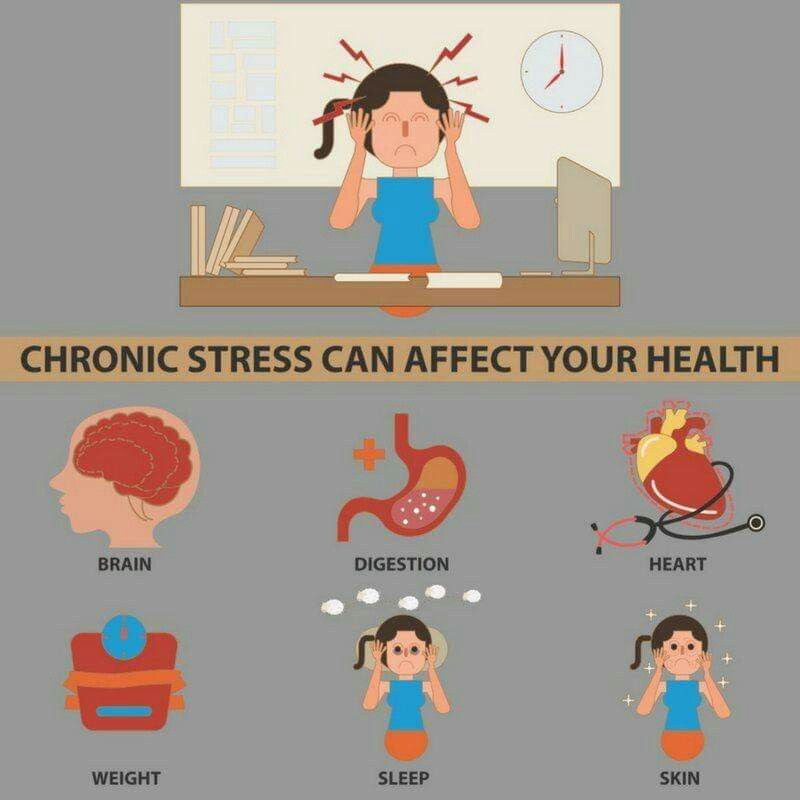 This is important because we also treat unpleasant or unwanted thoughts—even though they are just thoughts—as actual truths that we must avoid, or fix, or suppress, or change.”
This is important because we also treat unpleasant or unwanted thoughts—even though they are just thoughts—as actual truths that we must avoid, or fix, or suppress, or change.”
Have You Been Watching?
Mental Health Webinars
McLean develops free and reliable mental health resources for the public and professionals to promote healthy individuals and communities.
Register Now!
Detaching From That Critical Voice
“Having a critical, threat-detecting mind isn’t the problem,” Coyne asserts. “Rather, it’s our response to that critical mind that can trap us.”
To avoid these, Coyne reports that some people engage with mental health professionals by using cognitive behavior therapy (CBT).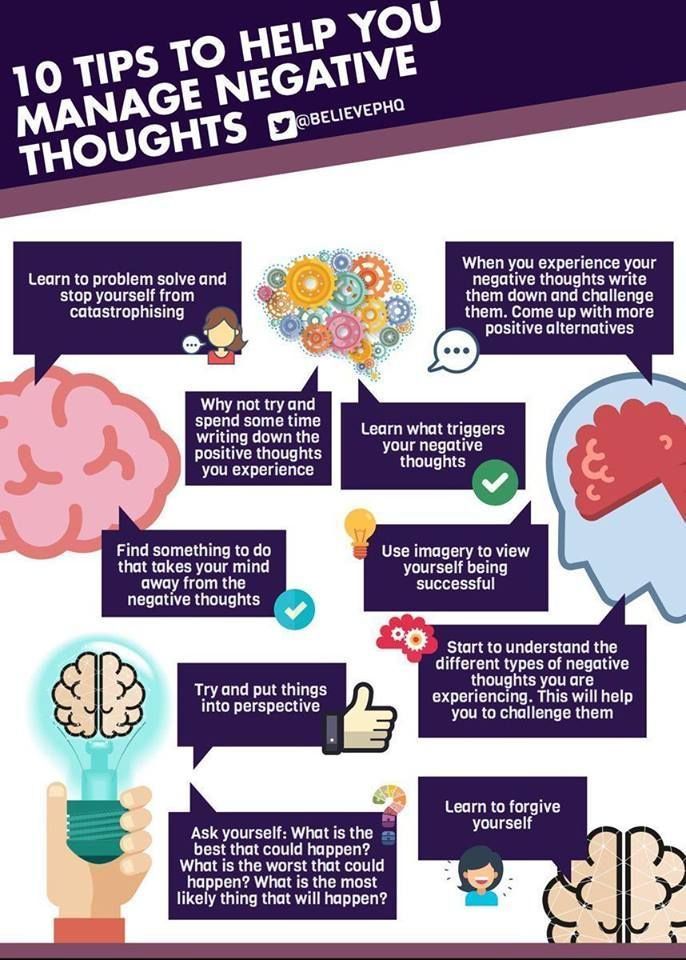 “This approach will teach you skills for how to manage these types of thoughts by helping you undermine their faulty logic or overestimation of threat.”
“This approach will teach you skills for how to manage these types of thoughts by helping you undermine their faulty logic or overestimation of threat.”
Approaches like acceptance and commitment therapy (ACT) or acceptance-based behavior therapy can also be helpful. These methods, Coyne says, “help you change your relationship to your thoughts, such that you become more skilled at noticing them mindfully and making a space for them without reacting so that you are no longer hooked by them.”
In essence, you might notice your critical mind chattering away at you, but it will no longer take up central importance it once did and leave you free to choose what direction to take in your life.
Self-Acceptance and Mental Health
Dr. Lisa Coyne discusses the importance of self-acceptance for better mental health and answers audience questions on how we can be more accepting of ourselves, each other, and our daily lives.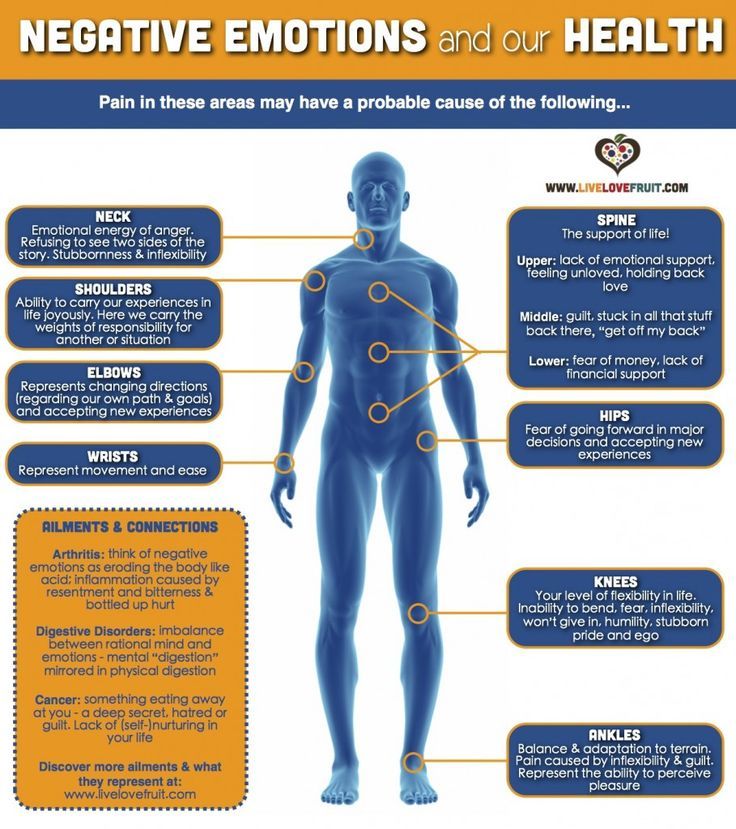
Watch the Video
Simple Steps to Stop Negative Thoughts
While some may need to seek help from professionals, Coyne says there are “simple steps that folks might practice, helping them detach from that critical voice and build more joy and vitality and connection in their lives.”
1. Pause a Moment
If you are feeling stressed, anxious, or stuck in negative thinking patterns, PAUSE. Focus your awareness on the world around you with your five senses.
2. Notice the Difference
NOTICE the difference between being stuck in your thoughts vs. experiencing the present moment through your five senses. Notice also what you have been up to in your mind.
Were you arguing with yourself? Struggling with disproving negative or critical self-evaluations? Trying to push unpleasant thoughts or images out of your head?
Ask yourself whether this mental struggle is serving you well.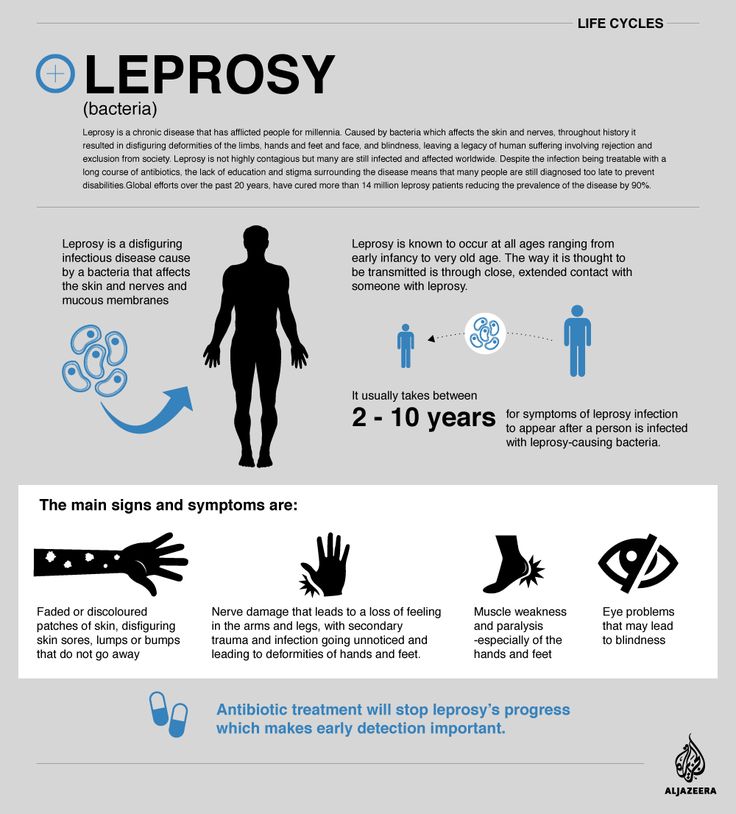
3. Label Your Thoughts
If it isn’t, see if you can step back and LABEL your thoughts as they are, rather than literal truths. For example, you might practice slowing down your thoughts and adding to them the stem “I am having the thought that ….”
Continue this practice of labeling, without attempting to soften, change, or avoid whatever thoughts you happen to be having. See if you can notice what it is like to have some distance between you—the thinker—and your thoughts.
4. Choose Your Intention
Once you have PAUSED from your mental struggle, NOTICED what’s happening and how it’s been working, and LABELED your thoughts for what they are—simple, mental weather that will come and go—you are better able to CHOOSE your intention, and the next right step for you.
Are you going to continue to struggle with your thoughts? Or you can choose to take a small step toward something that matters to you in your life.
Topics
- Lisa Coyne
what is it, where does it come from and how to fight.
June 22, 2022
22.06
9 minutes
9 minutes
34425
19
1
Updated: June 22, 2022
Updated 22.06
Negative thinking is inherent in all people. Therefore, it is worth recognizing the existence of a problem, starting to work on yourself, until the bad habit has taken root. Defeating negativism is real.
Article content
- What is negative thinking
- Where does negativity come from
- How negativity affects the brain
- How negativity affects life
- The Positives of Negative Thinking
- How to deal with negative thinking
- FAQ
- Expert opinion
What is negative thinking
In psychology, negative thinking is a special type of mental activity in which a person sees insurmountable difficulties everywhere, always aiming for the most deplorable outcome of events. Accompanied by various fears, phobias, self-doubt.
Types of negative thinking people - determined depending on the number and intensity of unpleasant thoughts:
- First level. A person constantly doubts and worries, feels depressed for no particular reason. Is in anticipation that something bad will happen, complains and criticizes himself, those around him more and more, laughs and smiles less. Attracts bad events.
- Second level. Immediately indicates that it will not work. Constantly argues, does not know how to listen. Wakes up already tired. Focus on yourself, not on others. Rarely attends recreational activities. Inflates even a minor problem, does not see positive alternatives. Overly critical of others, always dissatisfied with the result. Feels hopeless, doubts the future.
- Third level. Life sees only in gloomy colors. No confidence in yourself or others. Selfishness, always a bad mood, constant criticism and doubt. He believes that the negative is reality, and the positive is the desire to wishful thinking.
Important! Even if a child grows up in a positive environment, before the age of 18 he receives 77% of negative programs.
Where does the negative come from
Modern people are used to not noticing stress, depression, mood swings. But the human brain is very sensitive to stress, even if it is an integral part of everyday life. Negative stimuli cause greater neural activity, are perceived by the brain faster and easier than positive ones. The brain is a kind of trap for negativity.
Neuropsychologist Rick Hanson believes that focusing on the negative, the habit of ignoring the good, is a natural state.
Optimism and positivity - these features do not apply to everyone. For some positive emotions to be firmly entrenched in the subconscious, it takes more time than for negative experiences.
Reasons for negative thoughts:
- Features of the psychotype. Melancholics and asthenics have a weak type of nervous system.
They do not adapt well to new circumstances, get tired quickly, and do not know how to cope with stress. Therefore, they react painfully to any hardships of life, are prone to pessimism, they have a negative opinion about everything.
- Serious health problems - illness or the consequences of an accident. In such situations, it seems that life is over. Severely ill people, even after recovery, cannot get rid of total negativity for a long time.
- Psychological trauma - death of a loved one, rape. After such events, people often begin to think about the worthlessness and meaninglessness of their existence. The feeling of helplessness and weakness becomes the reason for the formation of a destructive pattern of thinking.
- Errors in education. Hyper-custody and an authoritarian style of upbringing lead to the fact that the child becomes infantile, he has various fears. In adulthood, this is manifested by inability, distrust of people, low self-esteem.
- Difficult childhood.
Negative thinking is a common consequence of a poor childhood.
- social environment. Energy vampires, manipulators, aggressors, people with victim syndrome or psychopathy are toxic personalities. Communication with them leads to the development of a destructive model of thinking.
- Overwork mental, physical, emotional, exhaustion. With prolonged work under stress, apathy, a distorted perception of the world, arises.
Pay attention! The habit of thinking negatively is a common symptom of mental disorders, phobias. With these pathologies, biochemical processes in brain tissues and hormonal balance are disturbed, cognitive perception is distorted.
How Negativity Affects the Brain
In people with a negative type of thinking, the brain stops synthesizing stimulants that help optimists think clearly and find motivation.
Effect of negativity on the brain:
- A person constantly scrolls negative events in his head.
There is a focus on the negatives. Consciousness gets used to such a model, begins to work according to familiar patterns.
- The nervous structures that are responsible for memory, feelings, and emotional control are destroyed.
- Increases the production of cortisol. The hormone damages the hippocampus - this part of the limbic system is responsible for the formation of new memories. The more negative thoughts, the more difficult it is for the body to normalize the levels of the stress hormone, positive memories are formed very slowly.
- New synapses appear, the structure of genes is disrupted. Which leads to negative changes in the structure of the brain.
Chronic negativity leads to the development of acquired helplessness. This is a psychological state in which a person stops making any effort after several attempts to achieve a goal. It can affect one or all areas of life. If you find it difficult to deal with negative thinking on your own, contact our psychologists. Experts will tell you how to stop feeling sorry for yourself, start moving on. Consultations are held online, you can contact us at any time.
How negativity affects life
The style of thinking affects the picture of life. Only those who have learned to perceive the world around them positively can avoid thinking about mistakes, regretting the wrong path, unachieved goals. But it doesn't always work out.
Consequences of negative thinking:
- a person is not able to live a full life;
- does not know how to rejoice in trifles;
- does not trust people;
- always looking for a catch in everything;
- cannot reach their full potential;
- infects others with negativity;
- blocks creativity;
- concentrates on problems and failures, which takes a lot of vitality;
- does not believe in himself;
- no desire to change for the better.
Important! The general state of health worsens in negativists, the immune system suffers, even mild illnesses are severe and with complications.
Positive aspects of negative thinking
Since you need to look for the positive in everything, you can find positive moments in a negative model of thinking.
How can you benefit from negative thinking?
- The chances of success increase. If a person fully accepts the situation with all its negative aspects, he understands that now he can only rely on himself. The chance of avoiding a complete fiasco increases if at the preparatory stage a person begins to think negatively. He can prepare for the worst possible outcome.
- Fighting fears, complexes. Limitations hinder development and success. Thinking negatively, you can pull out everything that causes fear, write it down and start working through it. This will help not only to understand what prevents you from achieving success, but also to analyze hidden opportunities.
- Self acceptance. Having studied all your pros and cons, you will learn to accept yourself as you are. There will be a feeling of inner freedom, you no longer have to wear masks, conform, endlessly try to prove something.
- Negativists objectively assess what is happening, because they concentrate on the study of failures and falls. Ignoring these aspects often leads to errors.
Pay attention! Shad Helmstetter's questionnaire is used to assess the level of negativity.
How to deal with negative thinking
Often, people who realize that negativity predominates in their minds fall into a stupor. It seems that there is no way out of this situation.
One of the most effective methods of dealing with negativity is meditation. Regular practice develops mindfulness, which helps to get rid of the negative thought pattern.
During meditation, a person is completely removed from observing feelings and thoughts.This helps to get rid of the rumination effect - the habit of constantly experiencing the same negative events and emotions.
How to stop negative thinking - examples and recommendations:
- Write down in a diary all the negative thoughts that you scroll through your head during the day. In addition, fix the reasons that caused them, your emotions. This is necessary in order to learn to analyze your internal state, to understand what is causing the problem.
- Find an alternative. You can't just get the negativity out of your head. It needs to be changed or modified. For example, not thinking about the fact that the interview will fail. And that you may not be the ideal candidate, but you will do everything that depends on you.
- Do not think that you can read the minds of others. Often, negativity arises from the fact that a person believes that others do not appreciate him, think badly of him. Turn on critical thinking, try to find evidence that confirms your hypothesis about the dislike of others.
Most of the time, you won't be able to find these facts.
- radical way. Write down all the negative thoughts on a piece of paper. Throw the paper in the trash or burn it.
- Change environment. Avoid communication with pessimists, communicate more with those who know how to look at everything positively. Learn from them, consult, copy the behavior.
- Learn to enjoy the good. Negative thoughts make you look for the bad in everything that happens. Meditation and other mindfulness practices will teach you to live in the here and now, help you form a rational view of reality.
- Give thanks for all the good things that happen to you. Every evening, write down in your journal everything you can be thankful for that day. And always thank the people who help you.
- Complain less. Complaining helps to get rid of the accumulated negativity. But by complaining, a person focuses even more and plunges into the negative. This wastes a lot of energy.
Instead of complaining, it is better to spend energy on finding a solution to the problem.
- Never dwell on a miss. Take a closer look at your life, you will definitely find many successful moments in it. Treat failure as the exception, not the rule.
- Switch your attention. Music or any creative activity, sports - all this helps to get carried away and distract from negative thoughts.
FAQ
How can you quickly get rid of negative thoughts?
+
If the thought that nothing will work out is constantly spinning in the head, a person stops doing something. Such a destructive pattern of behavior leads to a complete collapse in personal life, career. To get rid of a bad habit, you need to accept it. Every time negative thoughts appear, stop the flow, find the positive and immediately begin to act. Bad habits are hard to get rid of. But replacing the bad with the good is quite within the power of everyone.
What is the main difference between positive and negative people?
+
A negatively minded person blames someone or external circumstances for all his failures. Therefore, he does not want to do anything to correct the situation, he does not have the patience to complete what he started. A positive person realizes and understands the complexity or tragedy of the situation. But he accepts it, finds positive aspects, methodically seeks and finds a way to solve the problem.
How to recognize a negative person?
+
People with a negative mindset often develop victim syndrome. A person is constantly waiting for salvation, criticizes and blames everyone and everything around for his failures, demands universal recognition. He is demanding of others, but not of himself, touchy. Negativists do not develop and do not work on themselves, they are constantly dissatisfied with reality. Negativism is a contagious thing, with frequent communication, others fall under this harmful influence.
How to avoid the formation of negative thinking?
+
Prevention methods include a democratic style of education, timely detection and treatment of psychological and somatic diseases. It is necessary to avoid exhaustion, prolonged stress, and correct psychological problems in time. You need to stop communicating with toxic people, concentrate on your strengths and achievements. Surround yourself with positive and motivating people.
Expert opinion
Negative thinking harms a person, undermines mental and physical health. Negativists have low self-esteem, they cannot achieve success in various areas, they have difficult relationships with people. The lump of problems is increasing, the person is more and more immersed in negativity. An experienced psychologist or psychotherapist will help to cope with this condition.
We publish only verified information
Article author
Albina Monakhova clinical psychologist
Experience 17 years
Consultations 1439
Articles 347
Specialist in clinical psychology. Help in finding tools for self-realization, working out beliefs, fears and anxieties. Work with self-attitude, internal boundaries, understanding of interaction with society through conscious personal changes.
- 2007 - 2008 MUS Children's polyclinic No. 4 - teacher psychologist
- 2008 - 2009 Healthy Country LLC - clinical psychologist
- 2009- 2021 Republican Narcological Dispensary - psychologist
- 2012 - 2013 Occupational medicine - psychologist
- 2013 - 2015 LLC Vozrozhdenie - psychologist
- 2019 to present Teledoctor24 LLC - psychologist
Sources
- ... Tatyana Cooper. How to get rid of negative thoughts, 90 page 2017
- ... Mandy Holgate. Conquer your fear. How to Get Rid of Negative Attitudes and Succeed, 190 pp. MYTH, 2018.
- .
.. Thomas Trobe. Beyond fear. Transformation of Negative Emotions, 260 pp. Vegas IG, 2015
Share:
Category: Psychology
About health Pregnancy and childbirth About children healthy lifestyle Psychology Neurology Gastroenterology Personal care Medicines and dietary supplementsPrevious article
Counterdependence in Relationships
Next article
How to stop feeling sorry for yourself
Other related articles
Monakhova Albina Petrovna
09. 01
Signs of a cheating wife
Psychology
Pruzhinin Mark Yulievich
10.02
Alopecia in children
About children
Agishev Damir Adgemovich
06/28/22
myasthenia gravis
Neurology
Negative thinking: the most dangerous addiction
98,570
Knowing Yourself A Human Among Humans
Have you ever noticed how much time you spend thinking about negative or painful situations and replaying things that go wrong in your head? The problem is not specifically with you. The latest statistics states: 80% of our thoughts are negative, and 95% are repeated . And the more negative the experience, the more often we return to it. As obsessed, we reach for what hurts. As the Buddhist saying goes, we want happiness and yet we are chasing suffering. For what?
By returning to experiences over and over again, we are essentially trying to make the negative experience turn into something else. Our flashbacks are attempts to better understand our pain, spend more time with it, and make it go away. If we find out the cause, find out who is to blame and what to do about it, everything will be fine.
It sounds paradoxical, but we are holding on to our pain, trying to figure out how to let it go.
There are many unpleasant sensations associated with pain or any negative experience. In response to our unwillingness to feel all this, the mind directs us in a more familiar direction. He rethinks the problem over and over again in an attempt to avoid immediate sensations. The mind will always prefer to think about pain rather than experience it directly.
In the same way, we, contrary to common sense, cling to suffering as a way to take care of ourselves. Constantly thinking about its cause, we feel that our pain matters, that it happened for a reason and will not be forgotten. These reflections give our suffering a special value. If we suddenly stop coming back to pain, it may seem like we abandoned it, moved on before it was actually heard or taken care of.
If we don't constantly remind ourselves of our history, we may forget who we are, and then what? Who would we be and what would life look like if we did not relate to the already formed idea of ourselves?
On an existential level, returning to suffering allows us to feel our “I”, to feel that we exist involved in this process. It is in the process of thinking that we create our "I". We literally think we exist.
Not letting negative thoughts run through your mind can seem dangerous at the most basic level.
How do we know we're here if we stop engaging the mind in problems, in the very activity that allows consciousness to perceive itself? What will happen if we stop constantly recreating the idea of who we are? Without tasks that need to be solved, we literally lose our "I", our separation from the world.
So, our dependence on suffering is to some extent conditioned by the desire to feel better. But as a result, we feel worse and suffer more than we need to. What then can be done to get rid of this addiction?
1. Develop mindfulness
This is the key to getting rid of any habit. Start noticing those moments when you decide to direct your attention to events or circumstances that bother you. Be aware of your tendency to include tidbits of suffering in moments of peace. Note that you are doing this.
2. Admit you got caught
When you find yourself walking down the rabbit hole into your sick story, admit that you are there. Say out loud, "Yeah, I got caught" or "I'm really doing this right now.
" Freeze for a moment and, without losing your goodwill, admit that you are powerless to change anything, that you are captured by your suffering.
3. Inquire
Without judgment, ask your mind what it hopes to accomplish by drawing your attention to suffering. Does he want to find out what the problem is? Try to find another solution? To let your pain be heard? Do you need to remember her to protect yourself another time? Or are you scared to feel good? Or maybe scrolling through your head painful thoughts calms you down?
Eventually you will find that trying to reach agreement with the mind is like trying to pick a lock with a banana: it's just the wrong tool. The next time you want to deal with pain, remind yourself that it is useless to think about it: you have learned it from your own experience. Failure is a great teacher.
4. Move your attention from thinking about the problem to actually experiencing it.
Feel where and how you experience this pain in your body.
You can put your hand on your heart and even say a prayer for healing. Turn off your head and immerse yourself in the bodily experience.
5. Say “no” or “stop” aloud
We can learn to say “no” to the aspirations of our mind in the same way we say “no” to a child who does something that will harm him. Sometimes the wiser part of us has to step in and put an end to the harmful behavior of the mind. Be sure to say “no” out loud so that you can hear and perceive it sensually, and not just another thought of a negative mind.
6. Ask yourself what you risk if you let go of your pain
Find out what is dangerous in life if you don't remind yourself of the bad. Make a willful decision not to fill your present with worries of the past or (possible) future. Be bold: create a different identity that is not pieced together from personal stories, but always new and constantly changing.
As you work, you will find that you can be perfectly healthy and happy in the moment without going back and doing what you did before.
![]()
Learn more

